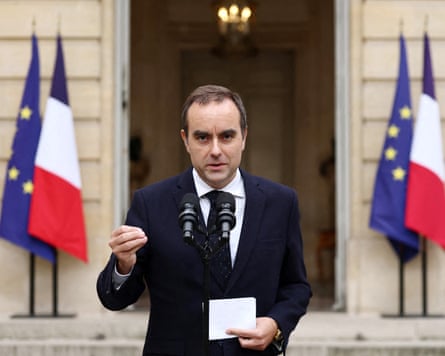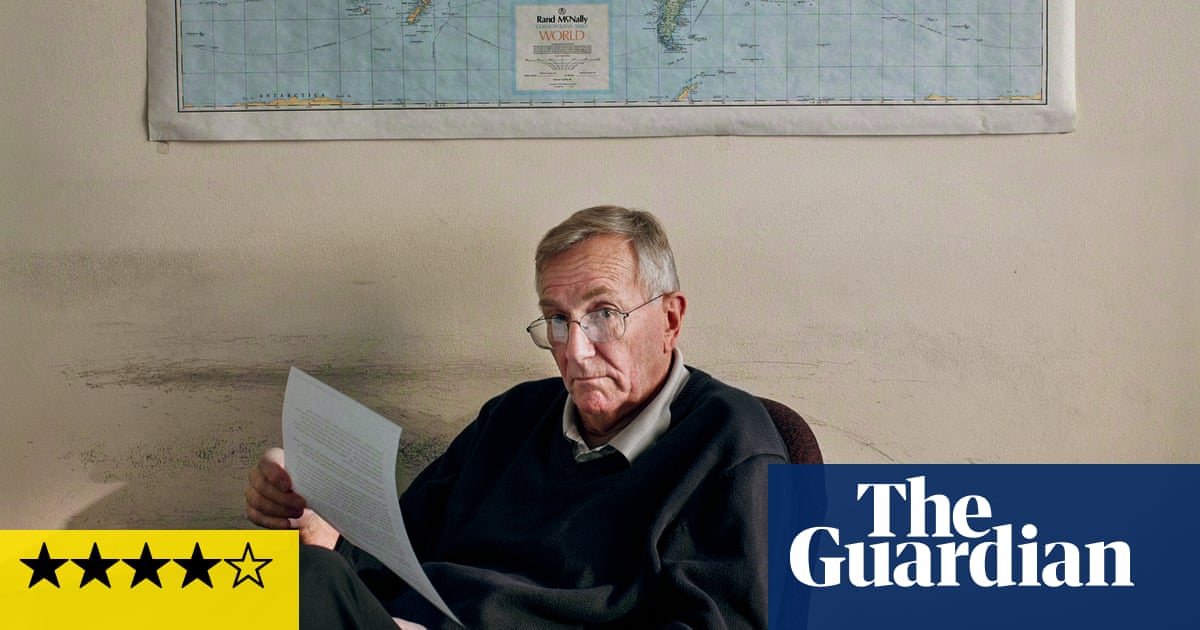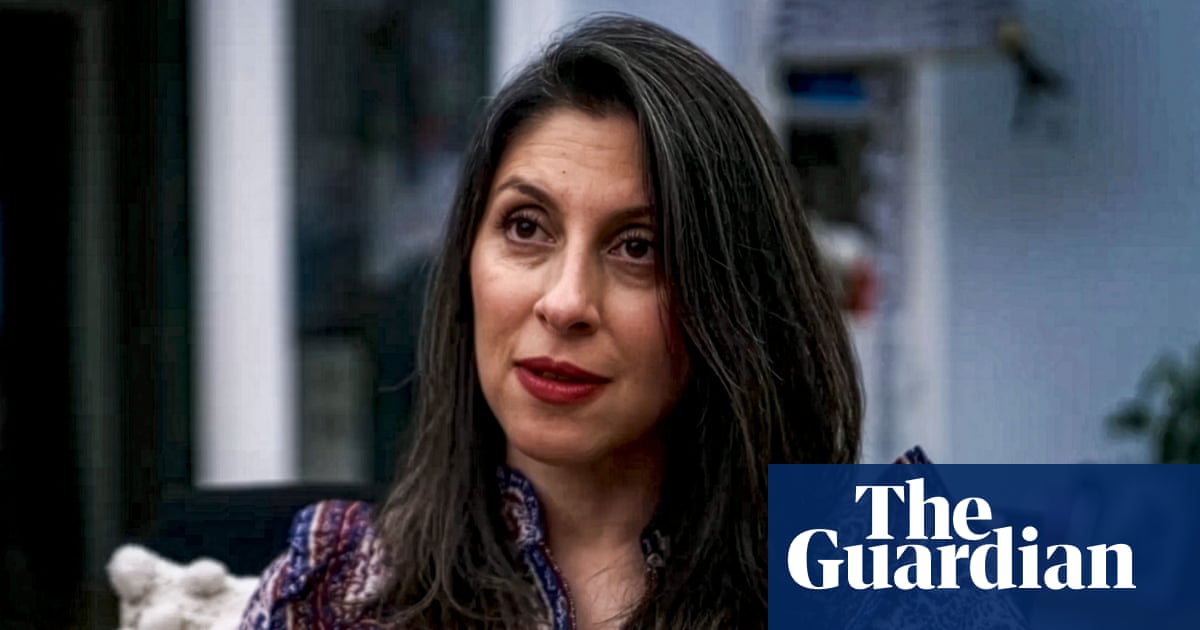In October 2022, when Rishi Sunak moved into 10 Downing St, he became the fifth British prime minister to take up the office in six years.
Unleashed on the UK by Brexit, this was unprecedented political turmoil. So how might we describe what is happening in France, now on its fifth (or sixth, depending how you count) premier in two years – three of them in the past 10 months?
The latest prime minister, the recently reappointed Sébastien Lecornu, may have bought himself a stay of execution on Tuesday, sacrificing Emmanuel Macron’s flagship pensions overhaul in exchange for opposition Socialist votes as the price for his government’s survival.
But it is, at best, a temporary fix. The EU’s second-largest economy is locked in a political permacrisis, the likes of which it has not seen for decades – perhaps not since the start of its Fifth Republic in 1958 – and from which there appears no easy escape.
We’ll look at the reasons for that, as well as what might follow over the coming weeks and years, shortly. First, let’s recap.
Minority rule
Essential context: ever since Macron called an ill-advised snap general election in 2024, France has had a hung parliament divided into three warring blocs – left, far right and his own centre-right alliance – none with anything close to a majority.
At the same time, the country faces dual debt and deficit crises: its debt-to-GDP ratio and budget shortfall are now almost twice the EU limit, and hard constitutional deadlines to pass a 2026 budget that at least begins to rein in spending are nigh.
Against that unforgiving backdrop, both Lecornu’s immediate predecessors as French prime minister – Michel Barnier, who lasted from September to December 2024, and François Bayrou, who took office from December 2024 to September 2025 – were ousted by parliament.
In mid-September, the president appointed his close ally Lecornu as his latest PM. But when, a little over two weeks ago, Lecornu unveiled his new cabinet – which turned out to be much the same as the old one – he faced fury from allies and opponents alike.
So much so that the next day, he resigned. After just 27 days in office, Lecornu became the shortest-lived premier in modern French history. In a dignified speech, he blamed political intransigence, saying “partisan attitudes” and “certain egos” would make his job all but impossible.

Then, another twist in the tale: just hours after Lecornu’s resignation, Macron asked him to stay on for another 48 hours in a last-ditch effort to salvage cross-party backing – a task, to put it mildly, not without complications.
Next, two of Macron’s former PMs publicly turned on the embattled president. Meanwhile, the far-right National Rally (RN) and radical left France Unbowed (LFI) refused to meet Lecornu, promising to vote down any and every new government unless there were snap elections.
Lecornu stuck at his job, talking to everyone who was prepared to hear him out. At the end of his 48 hours, he went on TV to say he believed “a path still existed” to avoid elections. Macron’s office confirmed the president would appoint a new prime minister two days later.
Macron kept his promise – and on Friday appointed … Sébastien Lecornu, again. So this week – with Macron helpfully sniping from the sidelines that the country’s rival political parties were “fuelling division” and “solely responsible for this chaos” – was Lecornu’s moment of truth. Could he survive – and can he pass that vital budget?
In a high-stakes speech, the 39-year-old PM spelled out his budget priorities, giving the centre-left Socialist party (PS), who detest Macron’s unpopular pension overhaul, what they were waiting for: Macron’s flagship reform would be frozen until 2027.
With the conservative Les Républicains (LR) already on board, the Socialists said they would not back no-confidence motions tabled against Lecornu by the far right and radical left – meaning the government should survive those votes, due on Thursday.
It is, however, by no means certain to be able to pass its planned €30bn budget squeeze: the PS explicitly warned that it would be seeking more concessions. “This,” said its leader, Olivier Faure, “is just the start.”
after newsletter promotion
A cultural shift
The problem is, the more Lecornu cedes to the centre-left, the more he will meet resistance from the centre-right. And, like the PS, the conservatives are themselves divided over how to handle the new government – some are still itching to topple it.
A glance at the parliamentary arithmetic shows how tough Lecornu’s task – and longer-term survival – will be. A total of 264 deputies from the far-right RN, radical-left LFI, Greens, Communists and hardline-right UDR want him out.
To achieve that, they need a majority of 288 votes in parliament – so if they can persuade just 24 of the PS’s 69 deputies or the LR’s 47 (or both) to vote with them, Macron’s fifth precarious prime minister in two years is, like his predecessors, toast.
Few would bet against that happening sooner rather than later. Even if, by some miracle, the dysfunctional assembly summons up the collective responsibility to pass a budget by year-end, the prospects for the government beyond that look bleak.
So is there a way out? Snap elections would be unlikely to solve the problem: polls suggest pretty much every party bar the RN would lose seats, but there would still be no clear majority. A new prime minister would face the same intractable arithmetic.

Another possibility might be for Macron himself to resign. After winning the presidential election, his successor would dissolve parliament and hope to secure a parliamentary majority in the ensuing legislative vote. But that, too, is uncertain.
Polls suggest the next occupant of the Elysée Palace will be Marine Le Pen or Jordan Bardella. There is at least an odds-on chance that France’s voters, having elected a far-right president, might think twice about handing them control of parliament.
Ultimately, France may not emerge from its quagmire until its politicians accept the new political reality, which is that clear majorities are a thing of the past, winner-takes-all no longer applies, and compromise is not synonymous with failure.
Many think that cultural shift will not be possible under the country’s current constitution. “This is no conventional parliamentary crisis, but a crise de régime” that will prove anything but temporary, wrote historian Pierre Purseigle.
“The regime … was never designed to facilitate – and even disincentivises – the emergence of governing coalitions common in the rest of Europe,” Purseigle says. “The Fifth Republic may well have entered its terminal phase.”
To receive the complete version of This Is Europe in your inbox every Wednesday, please subscribe here.

.png) 1 month ago
49
1 month ago
49

















































